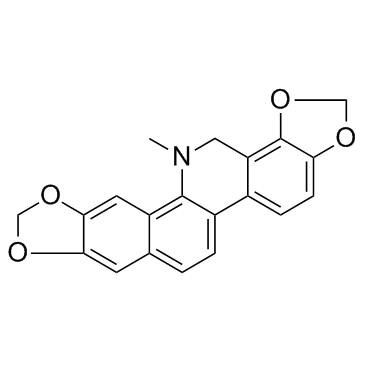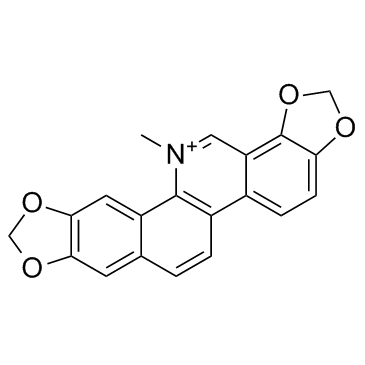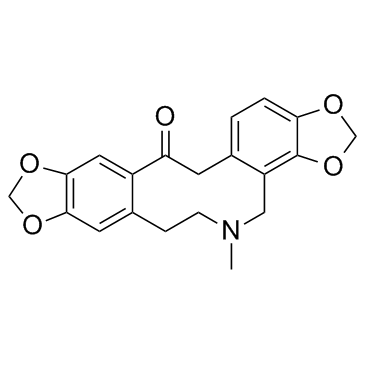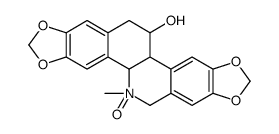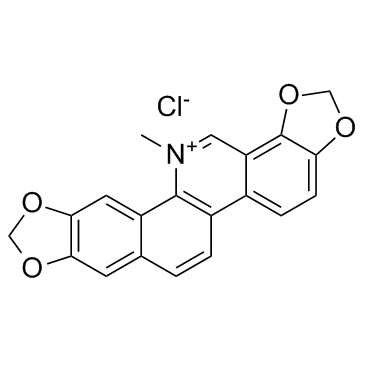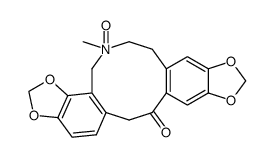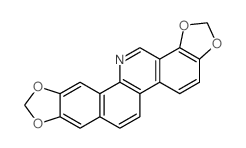3606-45-9
| Name | dihydrosanguinarine |
|---|---|
| Synonyms |
dihydrosanguinarine
13-Methyl-13,14-dihydro[1,3]benzodioxolo[5,6-c][1,3]dioxolo[4,5-i]phenanthridine dihydroavicine Dihydro Sanguinarine 3lle Hydrosanguinarine |
| Description | Dihydrosanguinarine is a natural compound isolated from the leaves of Macleaya microcarpa; has antifungal and anticancer activity.IC50 value:Target:in vitro: Dihydrosanguinarine showed much less cytotoxicity than sanguinarine: at the highest concentration tested (20 microM) and 24h exposure, dihydrosanguinarine decreased viability only to 52% [1]. Dihydrosanguinarine showed the highest antifungal activity against B. cinerea Pers, with 95.16% mycelial growth inhibition at 50 μg/ml [2]. dihydrosanguinarine showed the most potent leishmanicidal activities (IC(50) value: 0.014 microg/ml, respectively) [4].in vivo: Repeated dosing of DHSG for 90 days at up to 500 ppm in the diet (i.e. approximately 58 mg/kg/day) showed no evidence of toxicity in contrast to results published in the literature [3]. |
|---|---|
| Related Catalog | |
| References |
| Density | 1.4±0.1 g/cm3 |
|---|---|
| Boiling Point | 566.9±29.0 °C at 760 mmHg |
| Molecular Formula | C20H15NO4 |
| Molecular Weight | 333.337 |
| Flash Point | 176.8±21.5 °C |
| Exact Mass | 333.100098 |
| PSA | 40.16000 |
| LogP | 4.68 |
| Vapour Pressure | 0.0±1.6 mmHg at 25°C |
| Index of Refraction | 1.720 |
| Storage condition | 2-8℃ |
| Precursor 6 | |
|---|---|
| DownStream 3 | |


